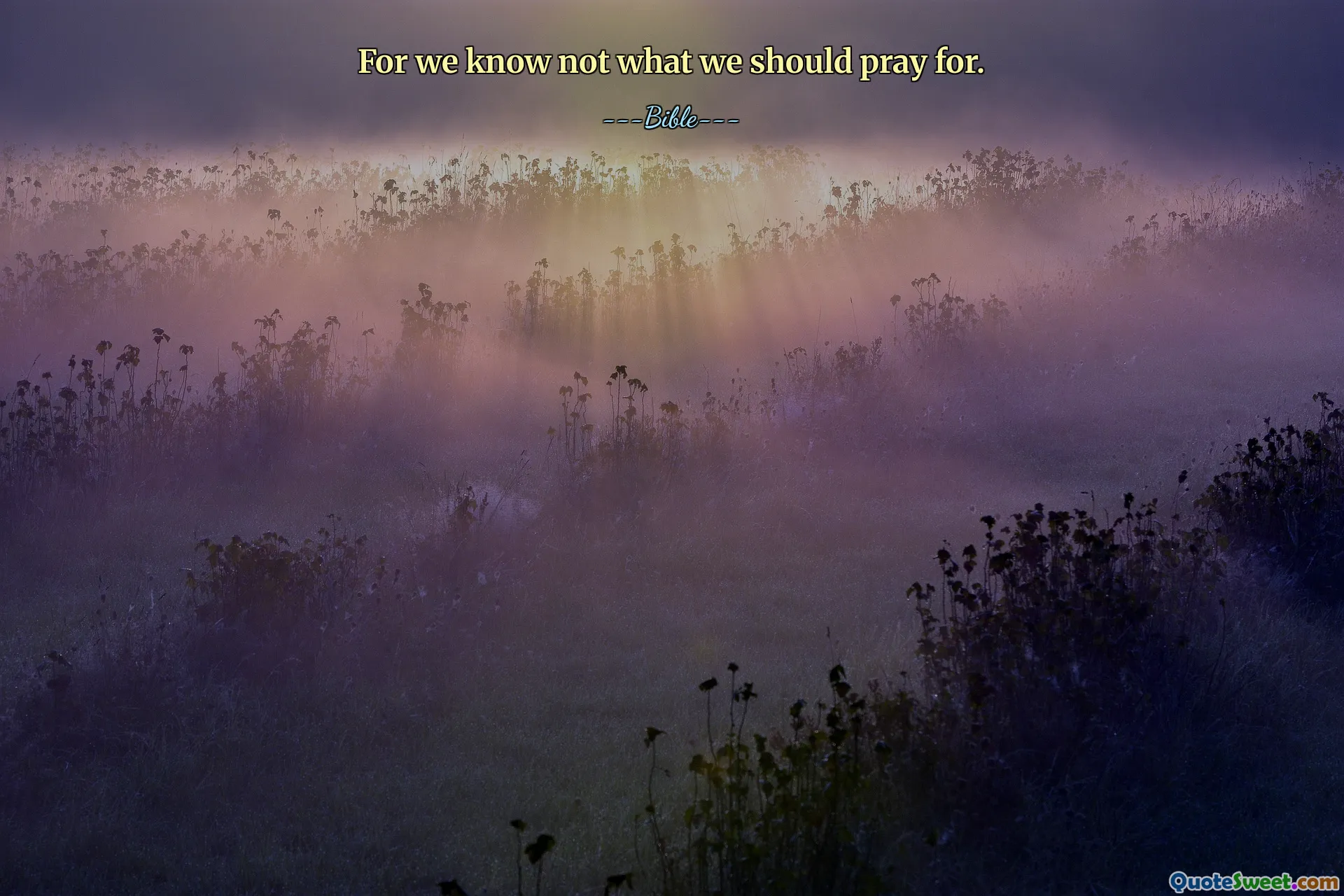
For we know not what we should pray for.
This quote underscores the profound humility and recognition of human limitations in our spiritual journey. It suggests that our understanding of our needs is often imperfect, and that genuine prayer involves humility—acknowledging that we may not fully grasp what is truly in our best interest or what our lives require. In many moments, we find ourselves praying for specific outcomes, guided by our desires, fears, or limited perspectives. However, this quote invites us to trust in a higher wisdom, implying that even our most heartfelt prayers might be insufficient or misdirected without divine guidance. It encourages believers to approach prayer with openness, surrendering their preconceived notions and allowing the divine to work beyond their understanding. This perspective fosters patience and faith, emphasizing that God's wisdom and plans surpass human comprehension. It also offers comfort during times of suffering or uncertainty, reminding us that not knowing what to pray for is natural and that divine providence is ultimately aligned with our true good—though it might be different from what we envision. Recognizing this can lead to a deeper humility and a more genuine connection to our spirituality, moving beyond self-centered petitions to a more trustful communication with the divine. The quote thus challenges us to let go of the illusion that we have all the answers or control, inviting us to rest in faith that God's insight is superior to our own, ultimately guiding us toward growth, healing, and fulfillment in ways we might not immediately understand.







